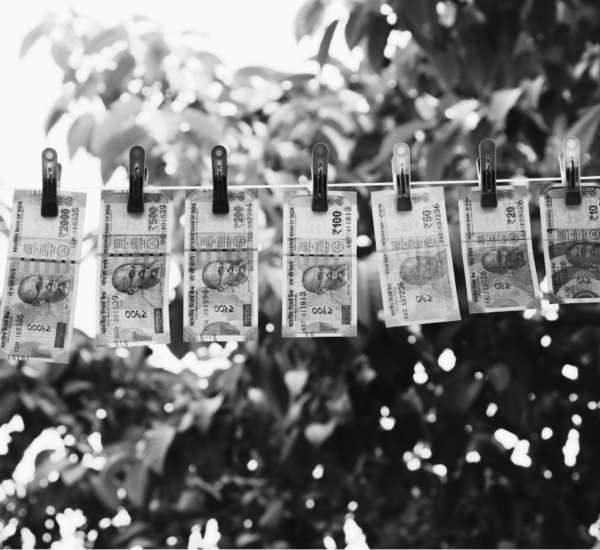
Devdatt Menon

Trisha Shivkumar
“The degree of civilization in a society can be judged by entering its prisons.”
– Fyodor Dostoyevsky
Introduction
A look at the demographic composition of the prison population reveals high over-representation of the marginalised sections of society. As these communities are unable to access legal aid, their time in prison is prolonged. When at the prison, they face a cruel and unequal administration tracing its origins to a colonial hangover. The British Government, driven by the desire to administer prisons profitably and economically, had constructed prisons as dreadful places. They accomplished this by enacting the Prison Act of 1894. This act was then used by States to enact their own manuals since the Seventh Schedule of the Indian Constitution empowers them to frame laws regarding prisons and other such institutions. However, The Union Ministry of Home Affairs guides states regarding prisons and prisoners by formulating Model Prison Manuals (MPM).
In this article, we argue that the above-mentioned provisions are unconstitutional and violative of fundamental rights. We will begin by briefly discussing some of these discriminatory provisions. The article then will proceed to analyse the constitutional validity of these provisions. We will then address the Model Prison Manuals which serve as a guide for framing State prison manuals and identify their shortfalls when it comes to tackling the issue of discriminatory provisions.
Casteist allotment of labour
The caste system is a rigid and hierarchical system wherein work is considered as the identity of communities. Due to this system, communities which were employed in degrading jobs were exploited and were not allowed to progress. This system was officially denounced in 1950 when the Indian Constitution came into force. Despite this, casteism is mandated by various state jail manuals.
Caste-based labour distribution in the prisons is a relic of colonial India because the British government justified such allotment of undignified labour to lower caste prisoners by stating that if the same job is assigned to a prisoner of higher caste then it will be looked upon as ‘barbarous cruelty, and excite nothing but indignation against the laws.’ It is disheartening that even to this day, this practice is mentioned in various state jail manuals.
Punjab Jail Manual of 1996, states that sweeper servants shall be chosen from the ‘Mehtars’or similar caste. Every subsidiary jail is supposed to be supplied with sweeper servants (or similar workers) by the jail to which it is affiliated. Further, the Punjab Jail Manual and Haryana Jail Manual (S. 896) state that female convicts of ‘suitable caste’ should be employed in the job of conservancy and in case there are no such females, then male convict sweepers should be given the job. When it comes to the allotment of cooking, the Haryana manual (S. 944) allots cooking to a well-conducted and short-termed person of ‘high caste’. According to various news reports, the Punjab Jail Manual of 1996 has been superseded by Punjab Prison Rules, 2021. But the Rule is not available in the public domain for further inspection.
Even after amending the jail manual, Madhya Pradesh Jail Manual (S. 36) still states that ‘Mehtar prisoners’ are responsible for handling human excreta in the toilets. On a side note, conservancy workers in prison do not have any legal protection since The Prohibition of Employment as Manual Scavengers and their Rehabilitation Act, 2013 does not hold prison authorities responsible to get rid of this practice. According to this act, local authorities are responsible to eliminate manual scavenging, but this Act does not include prison administration under ‘local authorities’ and hence falls short in addressing this issue.
Rajasthan Prison Rules, 1951 had similar discriminatory provisions. In December 2020, the Jaipur bench of Rajasthan High Court, while hearing two writ petitions, took note of the reporting by Sukanya Shantha for The Wire revealing the casteist allotment of labour in the state’s prisons. The court observed that the lowest strata of the society are assigned humiliating labour irrespective of the nature of the offence. The Court directed the Rajasthan Government to overhaul its prison manual to ensure that no undertrial undertakes menial jobs and no prisoner is compelled to indulge in degrading labour because of one’s caste. Subsequently, the Rajasthan Government issued a notification that amends the casteist provisions with an intent to eliminate casteist allotment of labour. Although this is a welcome step by the Government, a simple amendment will not suffice. This is because the Act states that refusing to obey duties directed by prison authorities will attract punishment (Part 2.1, Cl. 43). Even after complaining, they can be punished if the authorities feel that it is baseless in nature (Part 2.1, cl. 5). Hence, Rajasthan Prison Act still provides unbridled discretion to prison authorities which can be misused unless the whole system is revamped.
Discrimination based on prisoner’s social status
While regressive, explicitly casteist provisions continue to exist in some prison manuals, there are also provisions that discriminate based on social status. A case in point is the Haryana jail manual, which classifies prisoners in A, B and C categories It is common practice to segregate prisoners based on the threat they pose to other inmates. Class A includes prisoners who are non-habitual prisoners of good character who commit less serious offences. Along with these criteria, “prisoners who are by social status, education and habit of life been accustomed to a superior mode of living” are also classified as Class A prisoners (Haryana Jail Manual, S. 576-A). Similar provisions are included in the Tamil Nadu (S. 225), and Punjab jail manuals.
These manuals also detail the procedure by which courts recommend the classification of prisoners (Haryana Jail Manual, S. 576-A). Courts recommend assigning prisoners to classes based on social and financial status, profession, income and educational qualifications of the prisoner. The use of these parameters has resulted in different classes of prisoners receiving varying prison privileges. Reports as far back as 1990 detail a higher daily stipend for feeding class A and B prisoners, as compared to class C. Class A and B prisoners also had access to more nutritious food, more frequent opportunities to send letters, and receive newspapers. In certain places, class A prisoners were exempted from performing menial tasks and from physical restraints such as handcuffs. Since then, there has been a dearth of research on the matter. Considering the law allows for such categorisation it is reasonable to assume that such practices continue.
Violation of Prisoner’s Fundamental rights
- Based on Caste
Prisoners’ rights are not affected just because they are in jails. They are restricted from moving freely and practicing their professions, but prisoners are entitled to other freedoms along with the protection of Article 21 just like any other citizen. Article 21 states that a person’s liberty can only be deprived according to the procedure established by law which must satisfy the test of reasonableness. This test needs the procedure prescribed to be ‘just, fair and reasonable’. Also, Article 21 is not limited to mere animal existence but strives to maintain quality and dignity of life of a person. Since allotment of caste-based labour is humiliating and unhealthy it goes against prisoners’ right to life with dignity. The Prisons Act punishes prisoners for wilfully disabling labour or refusing to work and hence takes away their right to reject such labour. Adding to this their economic background makes it extremely difficult for them to address their grievances before the court. Hence, the procedure prescribed by law arbitrarily deprived prisoner’s right to lead a dignified life and hence violates Article 21.
Article 14 of the Indian Constitution consists of two key phrases ‘equality before law’ and ‘equal protection of the laws. Equality before the law refers to the fact that no person may obtain any special privileges based on their status and is bound by the law of the land. Equal protection of the law posits that the same laws apply to people who are placed in equal situations. Our country consists of people of different strata of society, where some are privileged and some marginalised.
Additionally, it has been held that uncontrolled discretion provided to authorities violates equal protection of the laws. To ensure judicious use of discretion, there must be certain norms that the administrator is compelled to follow. Otherwise, arbitrary power to authorities can easily be used to unreasonably discriminate. A case in point, when we consider the Rajasthan Prison Manual, prison administrators have practically unrestricted authority, while prisoners have limited or no means of legal recourse. These provisions confer sweeping power to prison authorities, without sufficient checks and balances, and are thus categorically arbitrary and unequal.
Since Article 14 is a guarantee against arbitrary action as equality and arbitrariness are antithetical. Legislation that burdens or gives privilege to a particular section of society arbitrarily or unjustly then such legislation is called class legislation which violates Article 14. The above manuals arbitrarily give privileges to ‘upper caste’ prisoners and burdens ‘lower caste’ prisoners and hence violates Article 14. Moreover, these states discriminate against citizens based on their caste and thus violate Article 15 as well.
Each of these manuals has legal provisions which state that the prisoner will be punished for ‘contumaciously refusing to work’. This legally compels the aggrieved prisoners to undertake humiliating jobs as prescribed. Article 23 which abolishes ‘forced labour’, exempts the state from imposing a compulsory service if it serves ‘public purpose’. The ambit of ‘public purpose’ is wide enough to cover all contingencies but while imposing such a service, the state should not discriminate based on caste, religion, race or any of them. Prison manuals not only discriminate but also legally bind the prisoner by coercing them to perform demeaning labour only because they are from a particular caste. These prisoners are left to suffer because according to the law there is no grievance redressal mechanism in place. It should be noted that Section 45 of the Prison Act of 1894 punishes a prisoner for falsely accusing any officer. This burdens the prisoner to prove that he/she has been ill-treated. This section has been incorporated in various manuals which gives prison authorities discretion to take whimsical actions even if it violates prisoners’ rights.
- Based on Social status
Article 14 allows for a reasonable classification of people, in the pursuit of equality. This classification should fulfil two tests to be considered in consonance with Article 14.
First, the classification must be based on intelligible differentia with a real and substantial distinction. Second, this distinction must have a reasonable nexus with the objective sought to be fulfilled. The differentiating factors in the cases of these states include socio-economic status, educational qualifications, etc. Some of these criteria are relevant for conducting various schemes such as educational and literacy schemes for prisoners (Model Prison Manual 2016, Chapter 14.7). Classification on this basis has a reasonable connection to furthering the educational and vocational interests of prisoners. However, classifying prisoners based on ‘superior mode of living’ to provide them different amenities and privileges as detailed in the previous section fails to be reasonable. The only result is the perpetuation of class systems within prisons, and therefore fails the test of reasonable nexus.
Model Prison Manuals
Model Prison Manuals are formulated by the Central Government to ensure prisons function on a set of rules, regulations and laws that are monitored by the constitutional framework of the country. The purpose of these is to bring about uniformity and act as a guiding source for state manuals. Regarding classification of prisoners, the Model Prison Manual of 2003 clearly states that classification should be done based on security, discipline and institutionalised program. Additionally, no classification based on socio-economic status, caste or class may be attempted (MPM 2003, Chapter 24.2). The entire purpose of classification is to ensure the prisoners receive the appropriate welfare schemes to reintegrate them into society. However, provisions that discriminate based on socio-economic conditions, perpetuate societal inequalities, rather than focusing on the improving quality of accommodation and work.
The manual also expressly forbids the management of the kitchen or cooking on a religious basis (MPM 2003, Chapter 2.15.1). However, there is no provision which explicitly states that allotment of sweeping jobs and other menial jobs should not be allotted to prisoners based on the caste of the prisoner. When it comes to conservancy, sweeping etc., this manual fails to state that work allotment will not be caste-based. Although women prisoners are exempted from menial jobs like conservancy, the same cannot be said for men’s enclosures (MPM 2003, Chapter 25.74 & Chapter 22.45).
Apart from these, the manual takes progressive steps by acknowledging the power of rehabilitation over punishment. It envisions having a Grievance Redressal System (G.R.S) in place. This section of the manual elaborately provides how a G.R.S committee is supposed to function and what role do district judges and board of visitors have to play in it. This endeavour of establishing such a system will be futile because the same manual punishes prisoners for making false verbal/written complaints against public officials (MPM 2003, Chapter 29.9, Cl. 10). Hence, it becomes pertinent to add that according to the Report on the Prevention and Atrocities against Scheduled Castes, Dalits are beaten up by jail staff, forced to do menial jobs for the staff as well as other prisoners and are intimidated routinely. They cannot complain due to fear of brutal harassment by staff. The manual punishes the prisoners if they refuse to abide by the orders of the staff, refuse to work or disable from labour and hence envisions to maintain the status quo (MPM 2003, Chapter 29.9, Cl. 7, 30 & 35)
In 2016, a new Model Prison manual was introduced. This manual makes additions to the previous manual of 2003 after considering various Supreme Court judgements and international conventions. While this manual denounces classification based on social status, it repeats the same mistake by not providing clarity on various issues mentioned above pertaining to the previous Model prison manual of 2003 (MPM 2016, Chapter 21.9, Cl.10, Cl. 7, Cl. 30, Cl. 35 & Chapter 24.42).
Conclusion
It is untenable that a prisoner’s caste identity and social status are used to burden them with degrading labour and unequal treatment in a free and democratic country. Casteist roles and discriminatory practices continue to be legally validated by various State Prison Manuals even today. Through this article, we have delved into how these provisions categorically violate several fundamental rights including Articles 14, 15, 21 and 23. This issue has remained ignored at the ground level despite updated Model Prison Manuals, indicative of the apathy towards issues of caste, social status and equality by lawmakers. The first step to rectify the discrimination would require amending these manuals at a minimum to that of Model Prison Manuals, and in line with constitutional values. However, a simple amendment will not solve this issue unless prison staff is sensitised to cater to the needs of marginalised sections. Further, rigorous inspection of prison staff and limit their wide discretion by placing checks and balances in order to avoid human rights violations.
Devdatt Menon is pursuing law in Government Law College, Mumbai and is currently in his second year. Trisha Shivkumar is a second year B.A. LL.B (Hons.) student from Jindal Global Law School. The authors were both interns at Public Concern for Government Trust.





